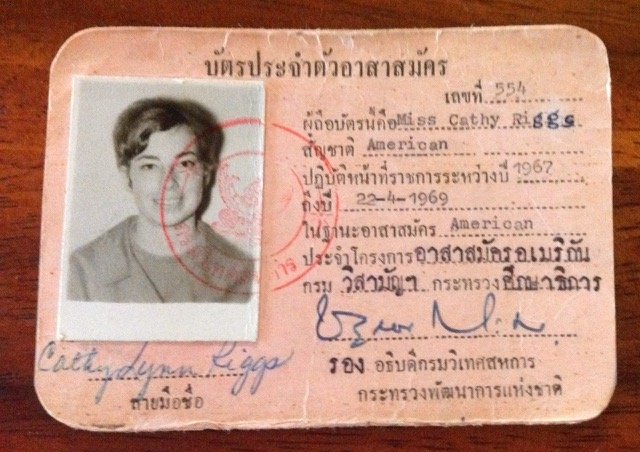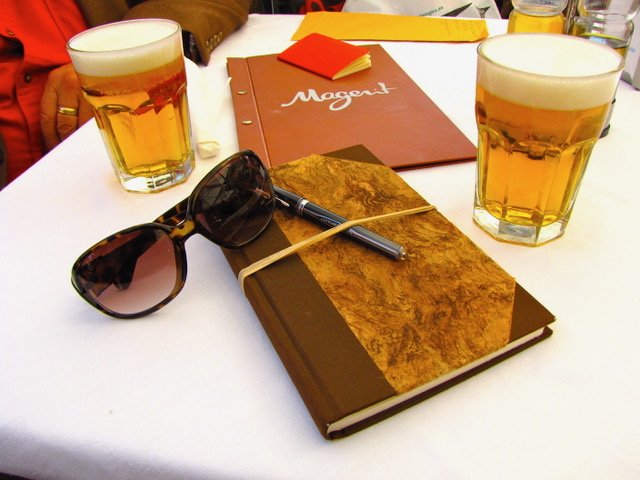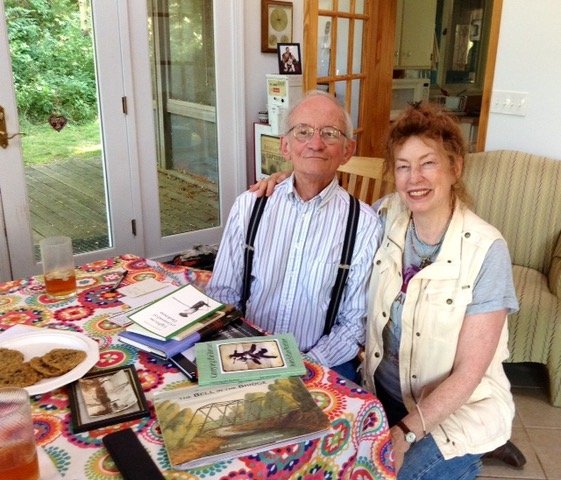Epistolary Journeys
When does a lifetime of letter writing begin? For me, it first happened in the mid 1950s when I attended Camp Bonnie Brae in the Berkshire Mountains of Massachusetts—now the oldest continuously operating Girl Scout camp in the United States. The collective experiences of living away from home for the first time in my life, sharing a cabin with a tribe of five other ten-year old scouts, tasting campfire cooking, swimming in a cold mountain lake, and studying the woodland plant and animal life filled letters that I wrote by lantern-light each night and mailed to my parents at the camp store’s post office.
Fast forward a decade to Bangkok, Thailand where I had just begun a three-year assignment as a Peace Corps Volunteer (1967-70). In that era before computers and cell phones, my epistolary communications with my family were filled with as much detail as was humanly possible to pen onto an onion-skinned, fold-and-seal aerogram. Mother saved them all and returned them to me later as a chronicle of that extraordinary chapter of my life.
I love the process of writing letters—the stationary, fountain pens, pots of ink, and the army of black squiggles and swirls that line up to form the letters that become words. I treasure the conversations captured within each stamped and sealed envelope that I present to our local post mistress for her final stamp of approval before its journey to the addressee is officially underway.
Writing postcards at café tables in cities and small towns from Madrid to Buffalo, Wyo. is a way to share our travels with family and friends in a way that is both visual and personally meaningful. Emails quickly evaporate into the ether. Like personal journals, penned postcards and letters capture treasured moments that last a lifetime.
Returning recently from Buffalo Wyo., Kit and I wound our way south past Casper and Cheyenne before heading east on Interstate across Nebraska. Before crossing the Missouri River at Nebraska City, we made a planned detour that took us map-in-hand to the home of an epistolary acquaintance--a Nebraska poet I’d not yet met--who lives tucked away down a winding country road in a hilly region northeast of Lincoln.
Several years earlier, I’d written to Ted Kooser, former U.S. poet laureate (2004-2006), after reading his quiet treasure of a book, Local Wonders: Seasons in the Bohemian Alps (2002). Since that time, the poet and I have exchanged letters, postcards with watercolor landscapes of his farm recording the changing seasons, favorite books, and quiet observations on the gardens and critters (orb weaver spiders in particular) that inhabit our respective country homes.
When we arrived, Ted and his sweet old snow-white Labrador Retriever Howard were waiting for us on the porch. “It’s National Ice Cream Month,” Kooser said after greeting us. “Would you like ice cream, or can I offer you iced tea and cookies?”
For the next two hours, we shared easy conversation about books, writing, poetry, life in the country, and we learned about the nature of Ted Kooser’s life as a former U. S. poet laureate. It was as if we’d known each other for ages. I delivered a copy of Gone West—poetry by our friend Walter Bargen, Missouri’s first poet laureate. In return, Ted presented me with two books from his personal library that he felt I’d enjoy—Nature a Day at a Time: An Uncommon Look at Common Wildlife by Cathie Katz, and Little Things in a Big Country by artist-writer-naturalist Hannah Hinchman.
Tucked in with them were two small publications enclosed in forest green, card-stock paper covers. One, a pocket-sized journal reminiscent of one Lewis and Clark might have carried, is Kooser’s long poem Pursuing Black Hawk (2012). The other is Two Years in the Catbird Seat: My Experience as U. S. Poet Laureate. The poet’s literary gifts are now notations in a chapter in this ongoing epistolary journey—one shared by two kindred spirits across time and miles.




